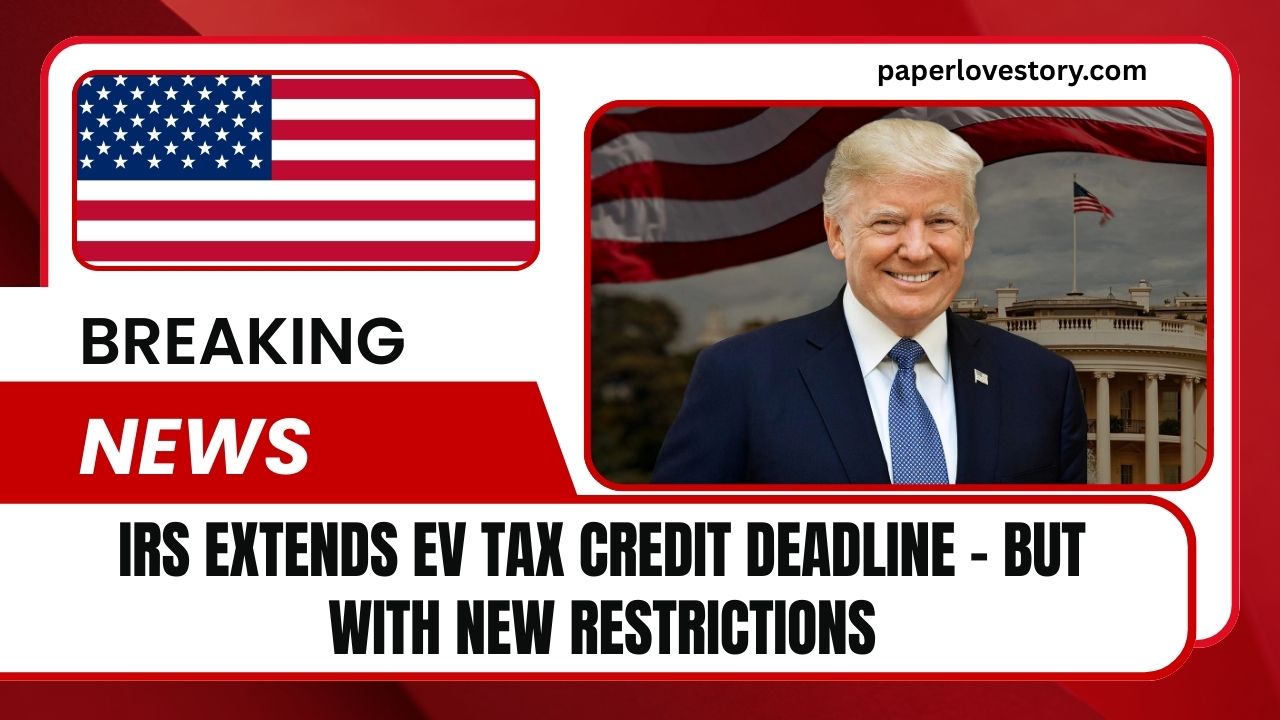The federal government’s $7,500 electric vehicle (EV) tax credit has been a driving force behind America’s rapid adoption of clean vehicles. Originally scheduled to end on December 31, 2032, the One Big Beautiful Bill moved that date forward to September 30, 2025.
Now, the IRS has quietly issued updated guidance: the tax credit deadline remains September 30, 2025, but buyers can still qualify under new conditions.
These restrictions change how “acquisition” is defined and what steps buyers must complete to secure their benefit. Let’s break down the details.
Tax Credit Deadline: September 30, 2025
The IRS deadline for claiming the EV tax credit is September 30, 2025. This means that after this date, no consumer may qualify for the incentive under current rules.
The change has fueled a rush of EV purchases, with many buyers concerned about missing out on a $7,500 savings opportunity. Automakers, too, have seen demand spike as customers want to lock in their credit before it disappears.
But the IRS clarified one important point: delivery of the vehicle is not the determining factor. Instead, what matters is whether the vehicle is “acquired” by the deadline.
This distinction allows buyers to breathe easier if they face long waitlists or factory delays—so long as they take certain steps before the deadline.
New Restrictions on Qualifying
The IRS has placed new restrictions on what counts as “acquiring” a vehicle. Simply placing an order or showing interest is not enough.
According to the updated guidance, a vehicle is considered acquired when:
- A written binding contract is signed on or before September 30, 2025
- A payment has been made. This could be a trade-in, a deposit, or even a nominal amount
If these two requirements are met before the deadline, the taxpayer is entitled to claim the credit once the vehicle is placed in service, meaning when it is finally delivered and taken possession of—even if that happens after September 30, 2025.
However, the IRS also warns that acquisition alone does not guarantee immediate entitlement. The vehicle must still meet all eligibility rules under the EV tax credit program, including:
- Price caps (generally $55,000 for cars and $80,000 for SUVs, trucks, and vans)
- Income caps for individuals and families
- North American assembly requirements for batteries and critical minerals
This ensures that the program continues to target vehicles and consumers that align with U.S. clean energy policy goals.
Deadline vs. Restrictions
| Category | Details |
|---|---|
| Deadline | Must acquire EV by September 30, 2025 to qualify |
| Acquisition Defined | Signed binding contract + payment (deposit or trade-in) |
| Delivery | Can occur after September 30, 2025, credit still valid upon possession |
| Credit Value | Up to $7,500 for new clean vehicles |
| Restrictions | Price caps, income limits, North American assembly requirements still apply |
Why This Matters
These rules strike a balance:
- For consumers: Provides peace of mind that they won’t lose out due to dealer delays, but demands action now to secure eligibility.
- For automakers: Helps maintain EV sales momentum leading up to the cutoff, while allowing more time to deliver vehicles.
- For policy: Ensures the tax credit is applied fairly and prevents abuse, since only signed, binding agreements with payment are recognized.
The IRS EV tax credit deadline of September 30, 2025 is fast approaching, but updated guidance has given buyers more flexibility. By signing a binding contract and making a payment before the deadline, you can still qualify—even if you don’t take delivery until later.
The catch? These new restrictions mean consumers must act decisively, follow the rules closely, and ensure their EV qualifies under price and assembly requirements. For many, the time to secure America’s last big EV tax credit opportunity is now.
FAQs
What is the official IRS EV tax credit deadline?
The tax credit expires on September 30, 2025. No vehicles acquired after this date will qualify.
Do I need to take delivery of the EV by the deadline?
No. As long as you sign a binding contract and make a payment by September 30, 2025, you can still claim the credit when you receive the vehicle.
What are the new restrictions?
The IRS now requires a signed contract + payment before the deadline. Standard program rules like income limits, price caps, and assembly requirements still apply.
